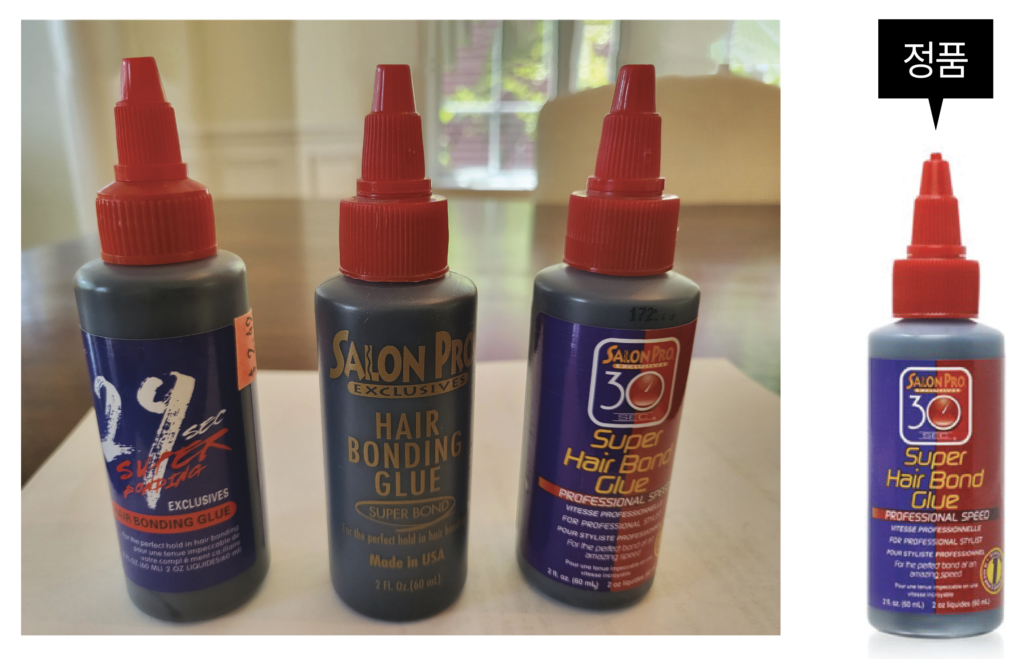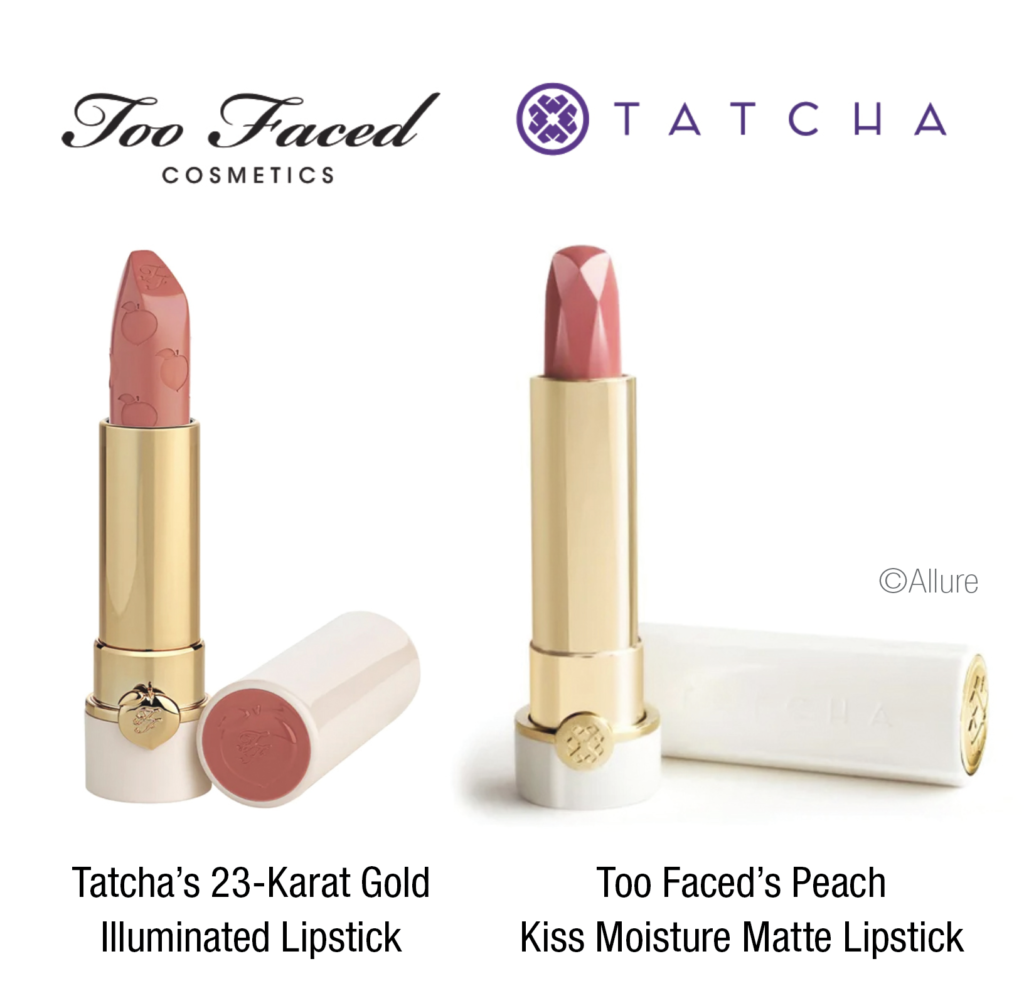Copycats in the beauty industry
What’s the standard?
The beauty industry in America is witnessing a wide variety of lawsuits against copycats. Through litigation, you can protect the trademark rights of your brand, and active enforcement can prevent unfair competition throughout the industry while protecting brand image and trademark. The litigation mostly leads to a court injunction and monetary damages, but amicable resolution through settlement is also possible. We reviewed the lawsuits occurred so far to understand the copycat problem in the beauty industry.

Salon Pro 30 Sec Super Hair Bonding Glue by Universal Beauty and its copycat 29 Sec Hair Bonding Glue. The copycat even used an identical barcode causing confusion in the market.
- Standard for knockoffs
1. Overall design similarity: you look at the overall appearance of products, including shape, size, color, pattern, and so on.
2. Similarity between main features: main features of the product design, such as logo, trademark, pattern, and design factors, are considered.
3. Likelihood of confusion: Consider whether similar designs can create confusion among consumers. If two products are so similar that consumers can’t tell them apart, it would be likely illegal.
4. Patent and trademark registration: you take it into account whether the products are protected by patent or trademark registration. If another company has registered the trademark or patented the design, any unauthorized use would be illegal.
- Examples of lawsuits in the beauty industry
1. Urban Decay vs Too Faced
Urban Decay brought a lawsuit against Too Faced in 2016 for copying their Naked Palette. Urban Decay alleged that Too Faced’s Chocolate Bar Eye Palette has copied their products in violation of copyright law and claimed misappropriation. The lawsuit was filed in a Californian court, and the parties resolved the conflict through a confidential arbitration.
2. Tatcha vs Too Faced

Tatcha’s 23-Karat Gold Illuminated Lipstick/Too Faced’s Peach Kiss Moisture Matte Lipstick
Tatcha brought a lawsuit against Too Faced for copying their lipstick packages. They alleged that the gold band and medal logo as well as the molded logo plate on top created confusion in the market. Tatcha supported the claim with many Instagram posts discussing the striking similarity between two companies’ lipsticks. The outcome is unknown.
3. Tom Ford vs Infused
A similar incident occurred between Tom Ford and skin care brand Infused Beauty Brands founded by Mona Alamo. Tom Ford sued Infused for copying their fragrances and using similar trademarks. They pointed out the similarities with their popular products “Tobacco Vanille” and “Neroli Portofino”.
During the litigation. Tom Ford offered visual evidence to show the similarities. Both companies used virtually identical packages, colors, scents, and names that would likely cause confusion among consumers. Infused argued that their product design differed from Tom Ford’s, but the court ordered Infused to pay $6.6 million in damages in 2019. Later, Infused changed their product names and decided not to use similar designs to Tom Ford.
4. Too Faced vs Stila
In March 2017, Too Faced brought a lawsuit against Stila for copying their Melted Metal lipstick products in Stila’s Glitter & Glow. Too Faced argued that Stila’s products are hard to tell apart from their products, leading to consumer confusion and loss of sales for Too Faced. On the other hand, Stila argued that they have unique designs and packages. The litigation ended without judgment.
Court judgment can vary for individual cases. Generally, if the plaintiff prevails in the case, the defendant will retract their products from the market and pay damages to the plaintiff. However, the outcome is not always the same, and the judgment varies.
Most copycat lawsuits include allegations of similarities or illegal duplication of a brand’s design, trademark, package, and advertisement between two products or brands. These lawsuits are related to intellectual property litigation, mostly brought against manufacturers, distributors, and resellers.
To avoid illegal copying, you should develop creative designs and disclose the source if inspired by other products. Also, companies should try to protect their design and trademark. If you are harmed by illegal copycats, you should get a professional consultation as they involve legal issues. It would be wise to consult a patent attorney or an intellectual property lawyer.